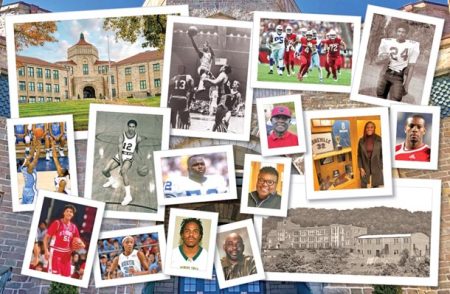Does Racism Still Exist?

by Dr. Don C. Locke
What can be said about racism in 2013, a time of post-race conversations? In the Race Card Project, an online board where one is challenged to distill one’s thoughts, experiences, or observations about race into one sentence that only has six words, one participant wrote, “nobody’s a racist, but racism persists.”
What we now know is that the concept of “race” has been discredited as a means of classifying people—there are more similarities across all people than can be found within so-called races. So how can we have “racism” without race?
This question is not new, and some in both the popular and professional press have answered it. The common thread in responses is that, while we cannot officially support the concept of race, far too many people in the U.S. continue to operate as though race is a viable way to categorize people. Perhaps we just might call folks members of racialized groups, just so we have a basis for continuing the conversation.
Some years ago I wrote a piece for the Asheville African American, entitled “Fatigue.” In that article I identified “things” that have left me tired:
• having to bite my tongue as I listen to folks make covert, unintentional racist statements;
• seeing no one who looks like me in positions to which I aspire and simultaneously being told that the “glass ceiling” is a figment of my racial imagination;
• being invited to participate in some activity by people whose sole purpose for the invitation was to insure the presence of at least one person of color;
• being told that economic factors and not race are causes of differences between racial groups;
• having white people tell me that they no longer discuss racial issues out of the fear of being labeled “racist;”
• being told that issues facing African Americans are no different from those faced by other ethnic groups, by women, by gay or lesbian groups, or by the disabled;
• explaining why African Americans have a desire for and a need for culturally based retreat centers in predominantly white environments; and
• being told by white people that they “don’t see color” when they interact with me.
These experiences are no less real for me today than they were in 1994 when I first wrote them.
Why do these issues remain salient in 2013? I surmise it’s because we have not dealt with them in a direct and honest fashion. I believe that many have concluded that, because they do not see themselves as “racist,” then racism certainly must not exist.
My friend Derald Wing Sue and his colleagues at Columbia University have written extensively on what they call “microaggressions.” Racial microaggressions are those daily behaviors that are brief and commonplace, verbal, behavioral, and environmental indignities, whether intentional or unintentional, that communicate hostile, derogatory slights or insults toward people of color.
Sue posited that individuals exhibiting microaggressions are frequently unaware that they are engaging in such behavior. Examples of microaggressions include: “Where are you from?” (assuming foreign birth); “You are so articulate” (surprise that a person is intelligent); “I don’t see color” (denying racial/ethnic connection).
Another Race Card Project participant posted: “our apathy turns race into scars.” So whether we call it racism, microaggressions, or something else, there is something that remains in our society where differences in people contribute to pain in some. Furthermore, the pain goes far beyond what might be considered as merely individual differences. There are commonalities among persons previously called members of races, that continue to divide and separate us.
I am tired of hearing people tell me that talking about race exacerbates the differences between people and leads to disharmony. A healthy community must engage itself in conversations about all members of the community, even where those conversations may be difficult due to the pain of some in the community.
Don C. Locke is Distinguished Professor Emeritus at NC State University, and Retired Director of Diversity and Multiculturalism at the University of North Carolina at Asheville. His 1992 book, Increasing Multicultural Understanding, was a SAGE Publications Best Seller; the second edition was released in 1998, and the third edition will be released in September, 2013.
He holds life memberships in Alpha Phi Alpha Fraternity, NAACP, the American Counseling Association, and the Association for Counselor Education and Supervision. He is married to Marjorie Myles Locke, and they are the parents of two adult daughters.






